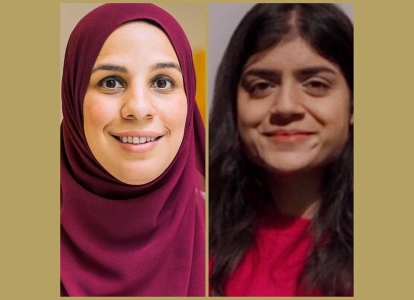 The Canadian Mental Health Association shared this image on social media as part of a campaign to raise awareness about the under-funding of mental health services. Learn more here https://cmha.ca/blogs/6-reasons-to-adopt-health-parity
CMHA National Facebook September 17 2020
The Canadian Mental Health Association shared this image on social media as part of a campaign to raise awareness about the under-funding of mental health services. Learn more here https://cmha.ca/blogs/6-reasons-to-adopt-health-parity
CMHA National Facebook September 17 2020
Dec
Canadian Mental Health Association Study on Muslim Women's Mental Health in the Greater Toronto and Hamilton Area
Written by Canadian Mental Health AssociationThe community-based research project, Muslim Women’s Mental Health, asked Muslim women in the Greater Toronto and Hamilton Area (GTHA) to describe their first-hand experiences of mental health and mental health services.
This kind of qualitative research is based on the wisdom that if you want to know how – and if – services and supports are working, you ask the service users and the service providers. [This study was prepared by Ruby Latif, MA; Doctor of Social Science Candidate (ABD), Royal Roads University; Research Associate, Diversity Institute, Ryerson University; Sara Rodrigues, PhD, Centre of Excellence on PTSD; and Andrew Galley, PhD, Canadian Mental Health Association, National.]
In Canada, Muslims are the targets of significant hate crime, aggression and discrimination. Muslim women in particular face discrimination and ill-treatment, even more so than Muslim men. This may be because the practice of wearing the hijab is a visible expression of Muslim women’s religion. It is not surprising that experiencing aggression and discrimination can go hand and hand with mental health difficulties. This study suggests that this is true for Muslim women in the GTHA.
The researchers in this study hosted focus groups with 13 Muslim women and interviewed 10 mental health professionals in order to understand how to improve mental health services and supports for Muslim women. The study also looked at why Muslim women may not be accessing services, and how to encourage them to seek support.
The women in the study revealed that they faced stigma and discrimination – both within and outside the Muslim community. There were cultural, religious or family stigmas about mental health that prevented women from accessing much needed mental health care. The women also faced service providers who didn’t understand their culture and faith, and who judged them. They spoke about the importance of having service providers who are sensitive to their life experiences and culture. This “cultural competency” and an increase in the cultural diversity of service providers would go a long way to improving the therapeutic experience for Muslim women.
The women in the study also mentioned the high cost of treatment and a lack of services in their community as obstacles to getting the mental health help they need.
CMHA is pleased to present this valuable research, which offers a clear vision for mental health services that respect and understand the specific needs of Muslim women. CMHA thanks the Women’s College Hospital for the grant that made it possible.


